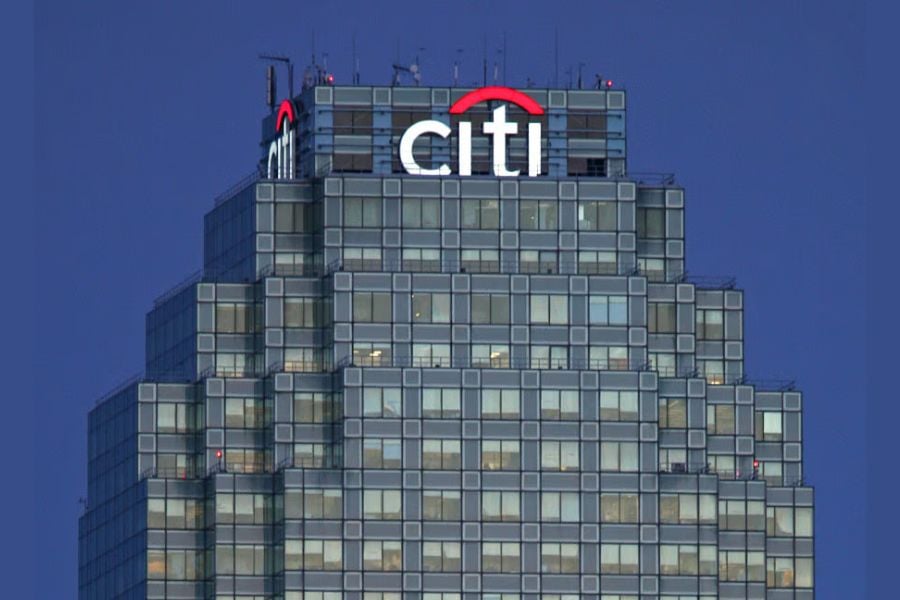

Citigroup Inc.’s traders turned in their best third-quarter performance in at least a decade as they benefited from the surge in volatility across asset classes in recent months.
Revenue from the Wall Street behemoth’s markets division climbed 1% to $4.82 billion in the third quarter, a surprise increase after the company warned investors it was expecting such income to drop just a few weeks ago. The business was helped by a 32% jump in stock trading revenue.
While a rise in souring credit-card loans weighed on profits during the period, Citigroup’s four other main businesses — services, banking, wealth and US personal banking — also saw revenue climb compared with the same period a year ago.
Taken together, the results are a key win for Chief Executive Officer Jane Fraser and her turnaround of the bank. Along with Chief Financial Officer Mark Mason, the two have overhauled the bank’s structure, shedding 20,000 roles and bringing in new senior management from rivals.
“In a pivotal year, this quarter contains multiple proof points that we are moving in the right direction and that our strategy is gaining traction,” Fraser said in a statement.
Fraser is looking to put her bank on a path to achieve a return on tangible common equity of at least 11% by the end of 2026. That metric went in the wrong direction during the third quarter, falling to 7% from 7.2% in the previous three-month period.
Citigroup still expects revenue for the full year to be at least $80 billion, while operating expenses are still forecast to be between $53.5 billion and $53.8 billion, excluding some regulatory costs and penalties.
Citigroup’s surge in stock trading revenue came as traders battled a jump in the VIX — also known as Wall Street’s “fear gauge” — in the third quarter. The performance mirrors results from Bank of America Corp. and Goldman Sachs Group Inc., which reported third-quarter results earlier on Tuesday.
Citigroup has spent years trying to improve its rankings in equities, a business led by Fater Belbachir. The quarter’s results were helped by trading gains across index and single-stock desks, Mason said, while the equity solutions desk was aided by an increase in share buybacks. The firm also saw a jump in both programmatic and high-touch trading activity, he said.
“We did see the activity pick up a bit in September even more,” Mason said on a conference call with journalists. “Those investments and decisions are starting to pay off.”
Citigroup’s net income for the third quarter dipped 9% to $3.2 billion or $1.51 a share. The quarter included a provision of $2.7 billion, which was driven by the higher losses in the company’s card business.
In its banking division, which recently announced a private-credit partnership with Apollo Global Management Inc., Citigroup’s revenue jumped 16% to $1.6 billion, including a 44% increase in investment-banking fees.
Revenue from the bank’s vast services business climbed 8% to a record $5 billion, while income from the US personal banking unit rose 3% to $5 billion.
The company’s wealth business saw revenue soar 9% to $2 billion, a boon for the division’s new chief Andy Sieg. The former Bank of America executive has been pushing through deep changes since his arrival at Citigroup last year.

The 25-year industry veteran previously in charge of the Wall Street bank's advisor recruitment efforts is now fulfilling a similar role at a rival firm.

Former Northwestern Mutual advisors join firm for independence.

Executives from LPL Financial, Cresset Partners hired for key roles.

Geopolitical tension has been managed well by the markets.

December cut is still a possiblity.
Streamline your outreach with Aidentified's AI-driven solutions
This season’s market volatility: Positioning for rate relief, income growth and the AI rebound
